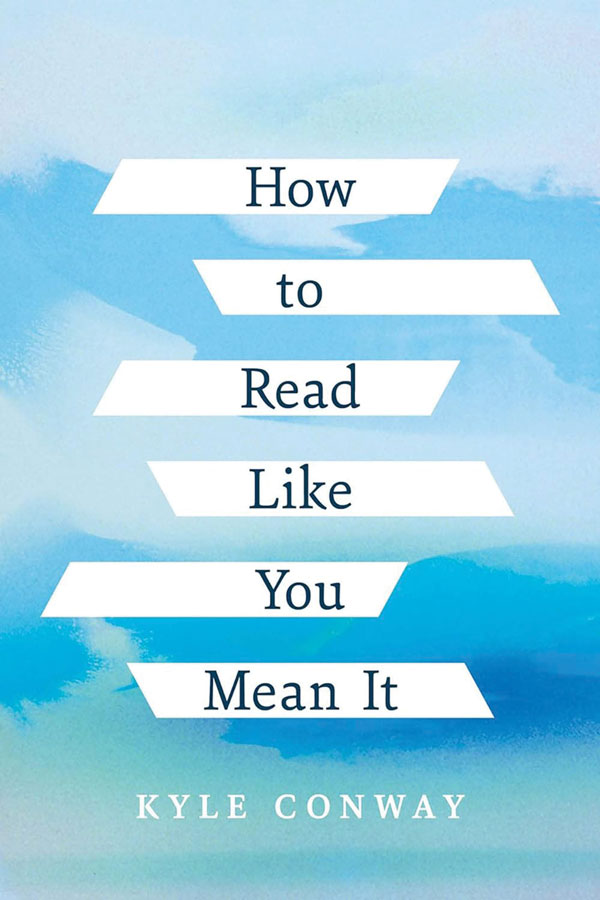Kyle Conway’s How to Read Like You Mean It addresses how students are taught to listen or read—or both—because, based on students’ own accounts and those of their teachers, they are not well instructed in either. The problem is far bigger than the classroom, for our world cannot exist without our ability to communicate—meaning to make and sustain a community, and thus each other, thus, ourselves. When we do not read well, we are not good at an essential part of life. So while the focus is on reading the kind of “dense and difficult texts” that university students need to know how to learn from—and be shaped by—this book is also part of Conway’s ongoing thinking about how we talk to each other across the polarizing divides that currently entrap us.
An associate professor of communications at the University of Ottawa, and author of three previous books on communication and translation, Conway here offers two answers to the question of why undergraduate students find the “dense texts” not just difficult (they are) but, far too often, inscrutable. The first is that when difficult texts are supposed to be interpreted in terms of single correct meanings, university learning becomes little more than a complicated quiz show on examinable content. This approach misrepresents the act of reading, thus cutting off the complex and mind-broadening relationship that the reader looks for and the writer wants to offer.
The second is that there is never an interpretation, or reading, of a text that closes off the possibility of others. If the “correct” reading of a text is to say with certainty what it means—end of argument—then reading is impossible. Fortunately, the impossibility of closure is reading’s greatest gift. To condense Conway’s argument, a text—that is, a sustained collection of propositions—is only the anchoring part (since it does not change over time) of what we make as its meaning through our series of interactions with it. In other words, we discover what it means to us. And as we change, both in the process of engaging with the reading, or over the time that might pass between readings, that meaning is made anew.
Conway owes the analysis of that series to, among others, the hermeneutics of Paul Ricoeur, which he explains in detail at the outset of the book. In Conway’s argument the process of meaning-making isn’t confined to texts, but also to two other classes of human expression: the single metaphor and “the meaningful acts of others.” Hence reading a text is a kind of template for reading everything, from a single sentence to any human act, all connected because they require us to ask, “What does this mean?”
To read like you mean it, then, is first to be (and accept that you are) “negated” by the fixity of the text itself; a text cannot mean anything you want it to; to it (and the world it creates) you are an outsider, and what it will mean is not a matter of your will or presupposition. In that negation, you’re disoriented, lost, because the text is something, effectively, that you are in and have to explore in order to find your bearings. And when you find something to hold onto, then you can begin to establish your relationship with it. For Conway, that relationship is a kind of love. You want to find out not just what it means, but what you and it mean together. You open yourself to being changed in the relationship, and that openness—that giving up of preconception—is the way in which reading is freedom. You can be changed—which is what learning is—because you have worked with the text to allow yourself to evolve.
In some ways the book performs its argument. At first I read it as if reading a text in undergraduate philosophy, and I found myself debating many of its points and assertions. There may come a time for that, but I realized that to read this book like I meant it was to look at the relationship between its theory and practice as showing me not how to think about an approach, but how the advocate of that approach thought. For me, the strongest case for the book is Conway’s readings of everything from A Christmas Carol to a Star Trek episode to the Book of Numbers. These encourage me not to try to hide the difficulty of dealing with dense and life-altering texts, but instead celebrate it as one of our most joyous and humanizing acts.
Richard Harrison is professor emeritus at Mount Royal University and the author of seven poetry books.
_______________________________________


